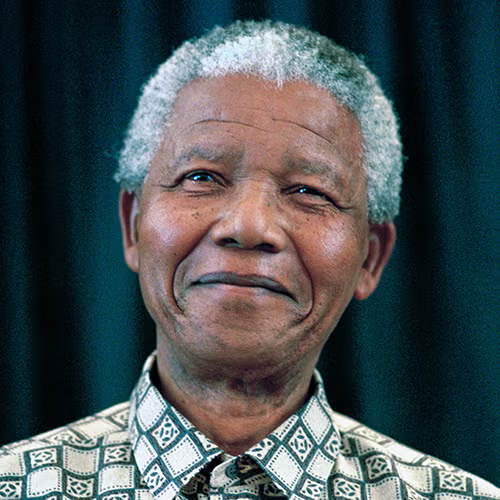Northern Nigeria, is a region immersed in rich history and cultural diversity, that is facing numerous challenges that have little its growth and development for over the years.
From economic underdevelopment to educational shortcomings and governance disputes, the North grapples with deeply embedded problems that affect the prosperity of its people.
This will delve into the key issues facing Northern Nigeria for over the years, including economic underdevelopment, education, governance, and cultural dynamics.
By addressing these challenges with focused strategies, there is hope for a brighter future for the region and its people.
Economic Underdevelopment and Poverty
One of the most pressing issues plaguing Northern Nigeria is economic underdevelopment.
Despite being endowed with vast natural resources and a population profoundly engaged in agriculture, the region has not been able to capitalize on its potential.
The economy of the North is predominantly agrarian, with most people relying on subsistence farming.
However, outdated farming techniques, poor infrastructure, limited access to markets, and inadequate agricultural policies have hindered the avid productivity.
The lack of diversification in the Northern Nigeria’s economy has also contributed to the widespread poverty as well as, little investment in non-agricultural sectors such as manufacturing, technology, or tourism, opportunities for job creation are limited.
This situation is particularly problematic for the region’s youth, many of whom remain unemployed and without prospects for a better future.
The blatant economic disparity between the North and the South has further exacerbated the region’s challenges. While Southern Nigeria continue benefited from oil wealth and industrialization, the North continues to lag behind, creating a broadening gap in development.
Poverty rates in the North are some of the highest in the country, contributing to malnutrition, poor healthcare, and a low standard of living for millions of people, resulting in the birth multiples crimes.
Diversification and Modernization
To address economic underdevelopment in the North, there must be an intensive effort to modernize the agricultural sector and diversify the economy.
Modern agricultural practices, including the use of technological schemes on the irrigation systems, and improved crop varieties, can significantly boost productivity and improve food security.
Additionally, expanding access to markets through better infrastructure such as roads, for the good networks to reach the market and processing companies, storage facilities and will allow farmers to sell their produce at fair prices and reduce high post harvest losses.
Beyond agriculture, Northern Nigeria must also affiliate in the non oil sectors such as manufacturing, renewable energy, and small scale industries.
Government policies that encourage entrepreneurship and skill acquisition, vocational training that can empower young people especially women in activities such as make-up, tailoring among others would swiftly reduce the region’s over reliance on agriculture.
Attracting private sector investment, particularly in industries like agro-processing, textiles and construction, in the major cities like Kano, Sokoto, katsina and Plateau, can further stimulate economic growth and reduce poverty.
Education:
There’s a need to bridge the gap, the education crisis in Northern Nigeria, it is quit one of the maximum critical issues hindering the region’s development.With some of the lowest literacy and school enrolment rates in the country.
The reasons for this crisis are multidimensional, including poverty, cultural practices, inadequate government investment, and a lack of infrastructure.
Among the most alarming aspects of Northern Nigeria’s education system is the gender disparity.
Girls in the region are habitually denied the chance to receive an education due to traditional norms, early marriage, and economic constraints.
In many cases, families prioritize boys’ education over girls’, limiting women’s, which is absolutely partaking in the workforce and contributing to gender inequality.
Tallying to that, there’s a cultural barriers, the quality of education in Northern Nigeria is also severely lacking.
Many schools are underfunded, with poorly trained teachers and inadequate learning materials.
This has resulted in high drop-out rates and a population that is ill-equipped to compete in today’s global economy.
Improving Access and Quality of Education:
Improving education in Northern Nigeria requires both government commitment and community involvement;
The first step is to increase investment in the educational sector, particularly by building new schools, equipping existing ones, and training of more qualified teachers.
Providing scholarships, school feeding programs as earlier invented and incentives for families to send their children expressly “girls” to school can also to help increase enrolments.
There must be a greater emphasis on inclusive education policies that respect cultural norms (respecting the interest of religious directive in the terms of dressing) while promoting progressive values like gender equality and the right to education for all children.
There must be a collaborative relationship in the mission of empowering, meaning, a Partnerships between government, NGOs, and other community leaders can help to create awareness about the importance of education, particularly for girls, and address resistance to sending children to the schools.
Additionally, vocational and technical education should be promoted to equip young people with skills that are relevant to the job market.
These programs can help bridge the gap between education and employment.
Corruption in Governance
Another major challenge facing Northern Nigeria is poor governance and pervasive corruption. The region has long suffered from a governance deficit, with political leaders often prioritizing their personal interests and gains over the needs of their people.
Resources allocated for development projects in critical sectors such as healthcare, education, and infrastructure are frequently misused or misappropriated, embezzled, leaving the region underdeveloped and lacking basic services.
Corruption has not only battered public trust in government institutions but also perpetuated a cycle of poverty and underdevelopment.
The lack of transparency and accountability has allowed corruption to thrive at all levels of government, from local councils to state administrations.
As a result, many of the region’s pressing challenges remain undresses, further deepening the gap between the government and the governed.
This has negatively effectuated even on the health care sector today, with many dying on daily basis.
Good governance is essential for the development of any region, and Northern Nigeria is of no exception.
Without effective leadership and responsible management of public resources, the region will continue to hold up behind in terms of development.
Strengthening Governance
Addressing governance challenges in Northern Nigeria requires a multi-faceted approach that focused on improving transparency, accountability, and public participation in decision making.
Strengthening anti corruption measures and enforcing laws that punish corrupt officials is crucial to restoring public trust and ensuring that resources are used for the benefit of the people, unlike the current system that are offenders are not call to action.
Additionally, civic education programs that empower citizens to demand accountability and engage with government institutions can help create a culture of transparency.
That would actively be enlightening the young one’s to be politically active and trustworthy.
Civil society organizations, the media, and community leaders must play a role in advocating for good governance and holding leaders accountable for their actions.
By fostering a culture of accountability, Northern Nigeria can improve governance and ensure that development initiatives are implemented fairly and transparently.
Social Dynamics; Piloting Tradition and Progress
Cultural and social dynamics in Northern Nigeria play a significant role in shaping the region’s challenges and opportunities.
While the North is known for its rich cultural heritage and religious conducts, some practices have hindered progress, particularly in areas like education, healthcare, and gender equality.
Early marriage, gender discrimination, and other cultural norms often limit the potential of women and girls, contributing to social inequality.
At the same vein, culture is deeply entrenched in the identity of Northern Nigeria, and any attempt to address these challenges must be respectful of the region’s traditions and belief.
The key is finding a balance between preserving cultural values and embracing progress that can uplift the region and its people.
Editorial: Accidental Correction of Our National Abnormalities
Uphold social changes and Sensitivity
Programs aimed at addressing cultural and social issues in Northern Nigeria should prioritize education and awareness. Engaging with religious and traditional leaders, who hold significant influence in the region, is essential to creating dialogue around issues like gender equality, women’s rights, and the importance of education.
By promoting policies that are culturally sensitive but progressive, Northern Nigeria can make progresses toward social equality and inclusivity.
Conclusion:
Northern Nigeria faces a sets of complex challenges, from economic underdevelopment and poor education to governance failures and cultural constraints.
However, these issues are not insoluble but with collective action from government, civil society’s and local communities, there is a pathway to progress that can unlock the region’s potential.
Addressing the economic, social and governance challenges in the North requires focused and sustained efforts, driven by a commitment to improving the lives of its people.





















































































